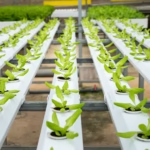
In recent years, Africa has emerged as a significant player in the global food export market. With vast arable land, improving infrastructure, and increasing global demand for sustainably sourced food products, the continent is positioning itself as a critical supplier in the agricultural value chain. As we move through 2025, the outlook for Africa agriculture export is more promising than ever, driven by innovation, investment, and rising international trust in African producers.
A Rising Global Player
Historically, African agriculture was largely focused on feeding domestic populations and neighboring regions. However, the narrative is quickly changing. Today, countries like Nigeria, Ghana, Kenya, and Ivory Coast are not only meeting local demand but are also becoming competitive in the international marketplace. Products like cocoa, cashews, sesame seeds, avocados, and maize are gaining traction globally, giving Africa agriculture export the spotlight it deserves.
This change hasn’t happened overnight. It is the result of deliberate investments in agribusiness, policy reforms, digital agriculture solutions, and a growing awareness among African farmers about international market needs. Exporters are increasingly adopting global best practices to meet the stringent requirements of foreign markets, especially in terms of food safety, traceability, and sustainability.
Why Africa? Understanding the Global Shift
Global buyers are looking for new, reliable sources of agricultural products due to a combination of factors—climate change affecting traditional suppliers, rising demand from Asia and the Middle East, and a push for more ethical and diversified supply chains. Africa, with its fertile soils and expanding workforce, offers a solution to all three.
Africa agriculture export benefits from favorable growing conditions across many regions. Countries like Ethiopia and Tanzania offer year-round growing seasons, while North African nations benefit from proximity to European markets. This geographic advantage allows African exporters to meet seasonal and off-season demand, giving them an edge over competitors.
Additionally, African governments and private sector stakeholders are working to standardize and improve export quality through certifications, training, and investment in post-harvest handling. These efforts help African products compete on quality—not just price.
Innovations Driving the Export Boom
Technology is a cornerstone of the current transformation. From drone-based field monitoring to mobile platforms that connect farmers to global markets, innovation is bridging long-standing gaps in logistics and communication. These tools are helping producers increase yields, reduce losses, and access accurate market information, which in turn strengthens Africa agriculture export capabilities.
Digital agriculture platforms are being used to monitor quality and traceability—critical concerns for international buyers. Blockchain technology, for example, is increasingly being used in the export supply chain to verify the origin and handling of products. This boosts buyer confidence and enhances the competitiveness of African exporters in a crowded global market.
Moreover, cold chain logistics and improved port facilities in countries like Kenya and South Africa are making it easier to ship perishable goods efficiently and safely. These infrastructural developments are key to sustaining growth in agriculture exports, especially for products like fruits, vegetables, and dairy.
Sustainability as a Selling Point
One of the emerging strengths of Africa agriculture export is its alignment with global sustainability goals. Many African farmers still use low-input traditional farming systems that have a smaller environmental footprint compared to industrialized agriculture in other parts of the world. This has become a selling point for environmentally conscious consumers and retailers.
Exporters are also embracing sustainable packaging, organic farming practices, and fair trade certifications to appeal to premium markets in Europe, North America, and the Gulf. Sustainability is no longer an optional branding tactic—it is a requirement for long-term success in global markets.
Africa’s emphasis on sustainability also resonates with global efforts to mitigate climate change. Exporters who invest in regenerative farming, soil conservation, and water-efficient irrigation are positioning themselves as partners in global food security and environmental stewardship.
Policy Reforms and Trade Alliances
Policy has played a vital role in supporting the growth of Africa agriculture export. Free trade agreements such as the African Continental Free Trade Area (AfCFTA) are reducing barriers between countries, making it easier for agri-products to move across borders before being shipped internationally. These regional trade networks are critical in building stronger supply chains and increasing export volumes.
Furthermore, international partnerships with the EU, China, and the Gulf countries have opened new markets for African products. These partnerships often include technical assistance, funding for export infrastructure, and support for training programs, which directly enhance the quality and volume of Africa’s agricultural exports.
Local governments are also stepping up. Many are offering incentives for agribusinesses, simplifying customs processes, and investing in export-focused agricultural zones. These policy efforts create a more enabling environment for Africa agriculture export to thrive.
The Role of Companies Like Ahar Group
Companies like Ahar Group are leading the charge in transforming African agriculture into a reliable global industry. By building transparent supply chains, offering training to local farmers, and investing in high-standard processing facilities, Ahar ensures that African products meet global expectations. The group’s commitment to ethical sourcing, quality control, and international compliance has positioned it as a trusted partner for buyers around the world.
Through its close relationships with producers and its global reach, Ahar Group is an example of how private sector leadership is vital in scaling Africa agriculture export. Their work reflects the broader shift in Africa’s role—from a source of raw goods to a dynamic player in global agri-business.
Conclusion: A Bright Future Ahead
The future of Africa agriculture export looks remarkably promising. With the right mix of innovation, policy support, investment, and international collaboration, African countries are on track to become agri-export powerhouses. The global market is increasingly open to what Africa has to offer—high-quality, ethically sourced, and sustainably grown food products.
As this transformation continues, it will not only benefit global buyers but also uplift local farming communities and strengthen food security across the continent. Africa’s rising role in global food exports is no longer a future possibility—it is a present reality unfolding before our eyes.











Add comment